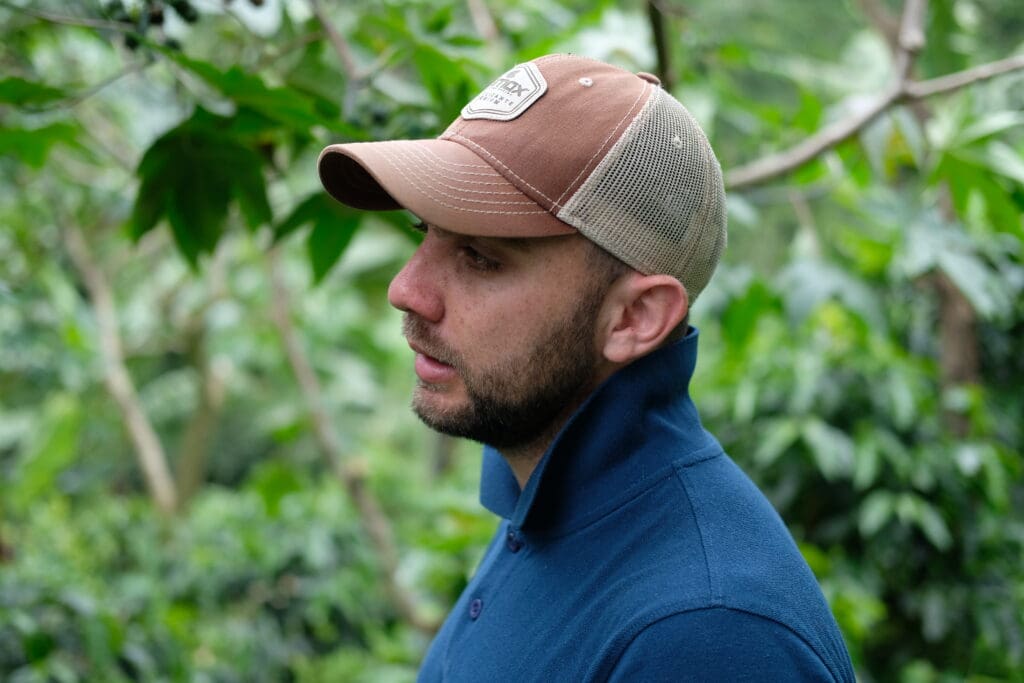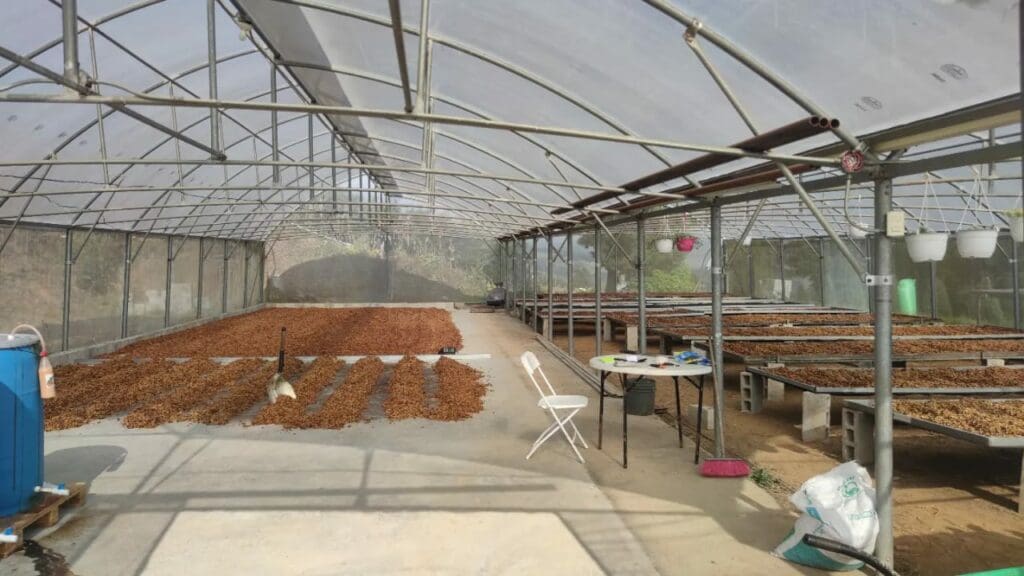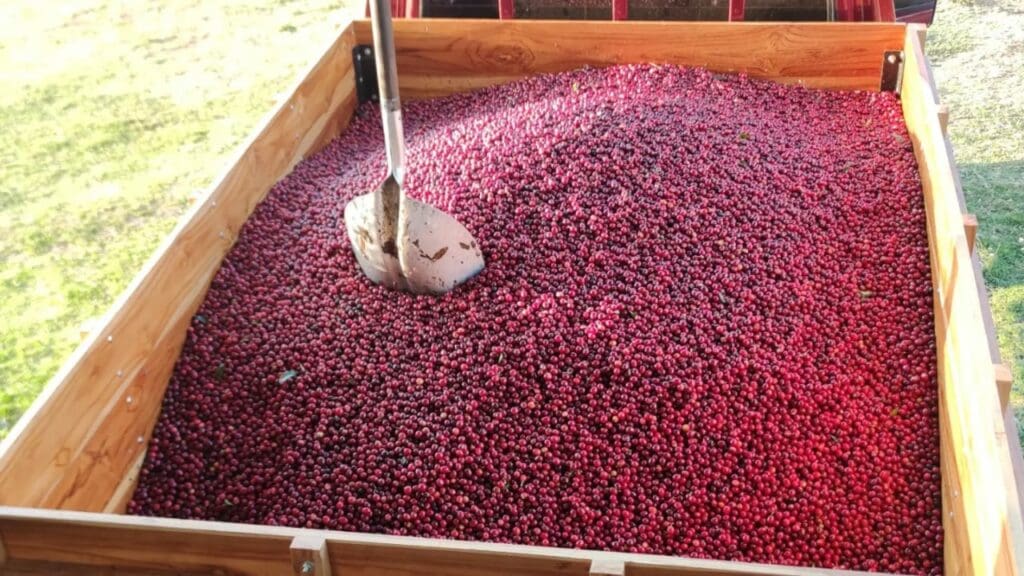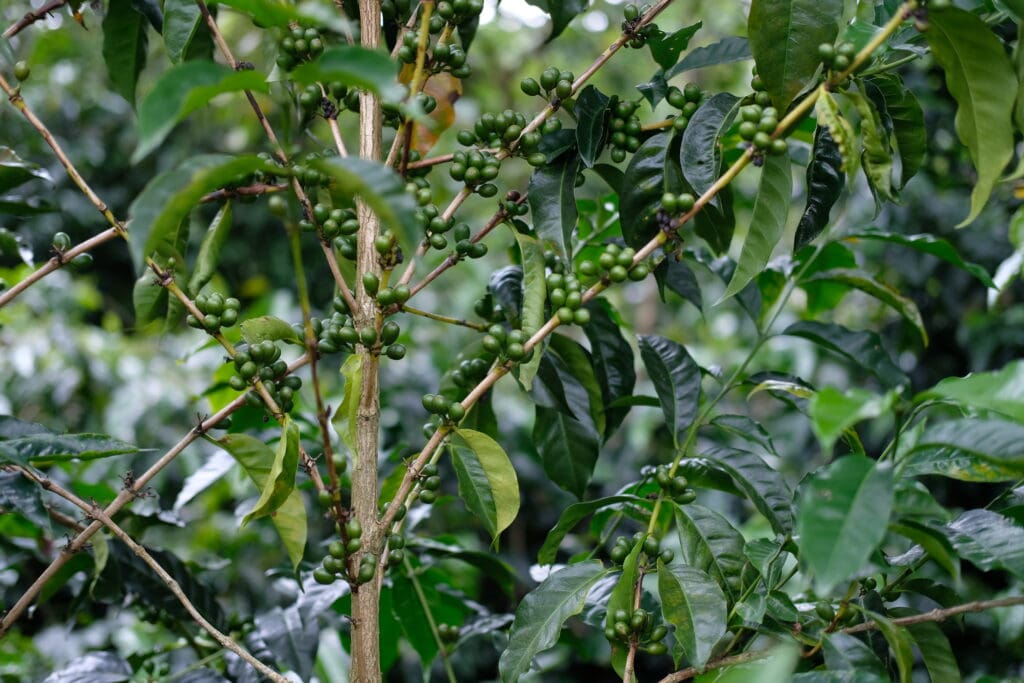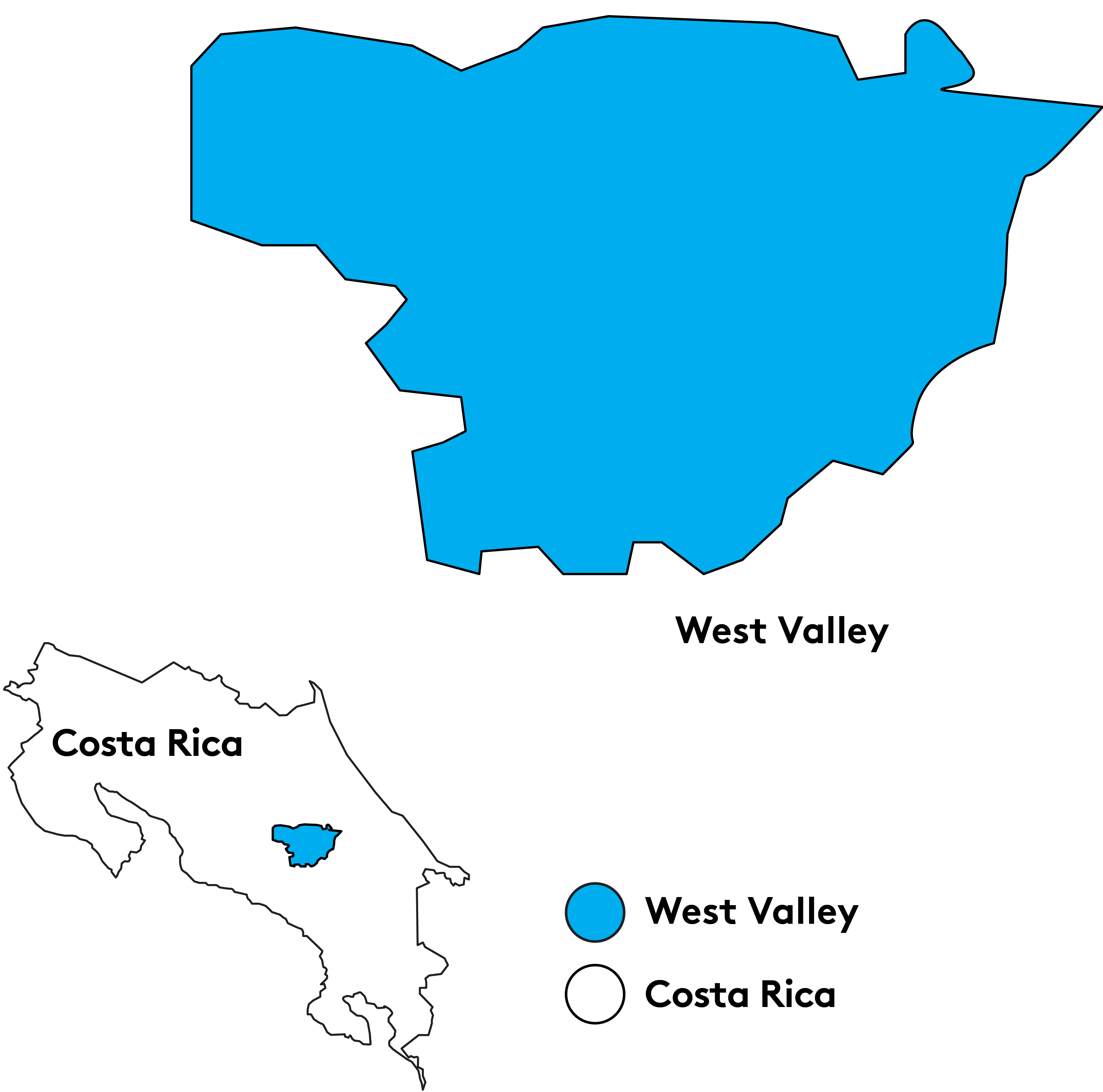Max Salazar micromill is a family project located in the West Valley of Costa Rica in Zarcero, Alajuela. Max Salazar and his cousins, Cristian and Greivin, had a vision to start a mill to be able to process their family’s coffee and maximize the quality of their crops. The families joined together in 2016 to start the mill, with Claudio Salazar, Max’s father, and Danilo Salazar, Cristian and Greivin’s father, funding the project. The Salazar’s family history in coffee dates back to Claudio and Danilo’s grandfather, Cristóbal Salazar, who began cultivating coffee in Zarcero in the 1950’s. Today, the mill is the next development in the Salazar family’s long history in coffee production.
The three cousins—Max, Cristian, and Greivin—knew that starting their own mill would present many challenges. However, the support and collaboration of the whole Salazar family has made the project successful. That collaboration extends to the entire production chain as well, with farms divided among the families to manage. Each family member plays a role in production, including farm and plant maintenance, milling, finding innovative ways to improve their processes, and Cristian and Max learning more about cupping and training so that they can guarantee the quality of their product.
Max emphasizes that the coffee from the mill is unique because it is a small family project, striving each day to create a high quality product that celebrates the terroir of the farms where the family cultivate coffee. This lot of Milenio coffee comes from La Isabela, a farm owned by Max and his parents, Claudio and Dunia. La Isabela is where the family grows coffee varieties like Villalobos, Milenio, and Gesha. The cultivated land covers 7 hectares, resting 1550–1700 meters above sea level, and is dotted with shade trees to mitigate the sunlight that beats down on the land during the day. The climate of Zarcero, the town in Alajuela where you can find La Isabela, is hot during the day with low temperatures at night. This daily temperature fluctuation is a perfect scenario for local flora and fauna, and contributes to high sugar content in the coffee cherries grown here.
Across the Salazar’s farms the family produces Caturra, Yellow, Red, and Orange Catuai, Villalobos, Obata, Centroamericano, Gesha, Pink Gesha, SL-28, San Roque, Milenio, Pacamara, Monte Cristo, and Bourbon. La Isabela produces around 230 bags of coffee each year, but only 20% of that coffee is being processed at Max Salazar Micromill so far. Max and his family have been working strictly with micro and nanolots since opening their mill, learning by experimentation and experience. The mill primarily offers Honey and Natural process coffees, combining slow fermentation with different drying methods.
Max and the rest of the Salazar family look forward to making improvements to the mill, and gradually achieving greater sustainability in their coffee production. This will include new technologies and equipment, greater efficiency with water and energy, and continuing to take steps toward mitigating climate change and creating natural habitat for local animals by planting trees in their coffee farms. These changes go along with work they’ve already done, earning certifications from both Bandera Azul Ecologica and NAMA Cafe.
This lot of Milenio coffee underwent Anaerobic Natural processing. Freshly harvested cherries are first fermented whole in the open air for 24 hours. The cherries are then moved to sealed tanks where they are fermented for 72 hours. The fermented coffee is then dried in full sun exposure for 25 days.
